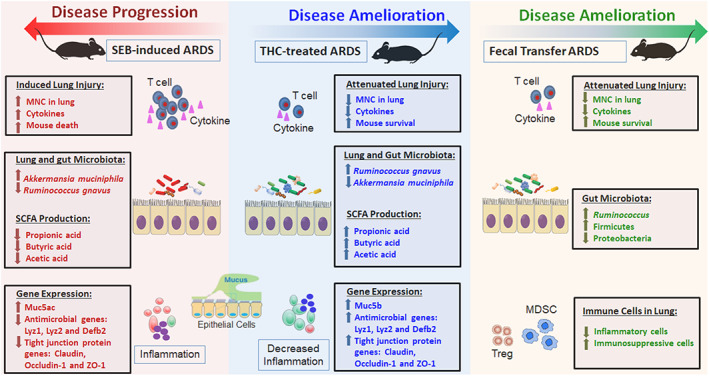FIGURE 6.

Schematic representation on how Δ9‐tetrahydrocannabinol (THC) and microbiota from THC‐treated mice may attenuate staphylococcal enterotoxin‐B (SEB)‐mediated acute respiratory distress syndrome (ARDS) and mortality. SEB acts as a superantigen and triggers robust inflammation in the lungs leading to ARDS and death. SEB also causes dysbiosis in the lungs and gut with emergence of pathogenic bacteria. This is also accompanied by decrease in SCFA, increased expression of Muc5ac and decrease in antimicrobial peptides and tight junction proteins. This may lead to increased penetrance of pathogenic bacteria in the lungs and further aggravation of inflammation. Treatment with THC (SEB + THC group) leads to reversal of dysbiosis and other deleterious changes induced by SEB leading to survival of mice. Faecal microbiota transplantation (FMT) experiments demonstrate such that transfer of microbiota from THC‐treated mice can also cause beneficial bacteria to colonize and suppress SEB‐mediated ARDS, inflammation and mortality by also inducing an anti‐inflammatory state consisting of regulatory T cells (Tregs) and myeloid‐derived suppresser cells (MDSCs)
